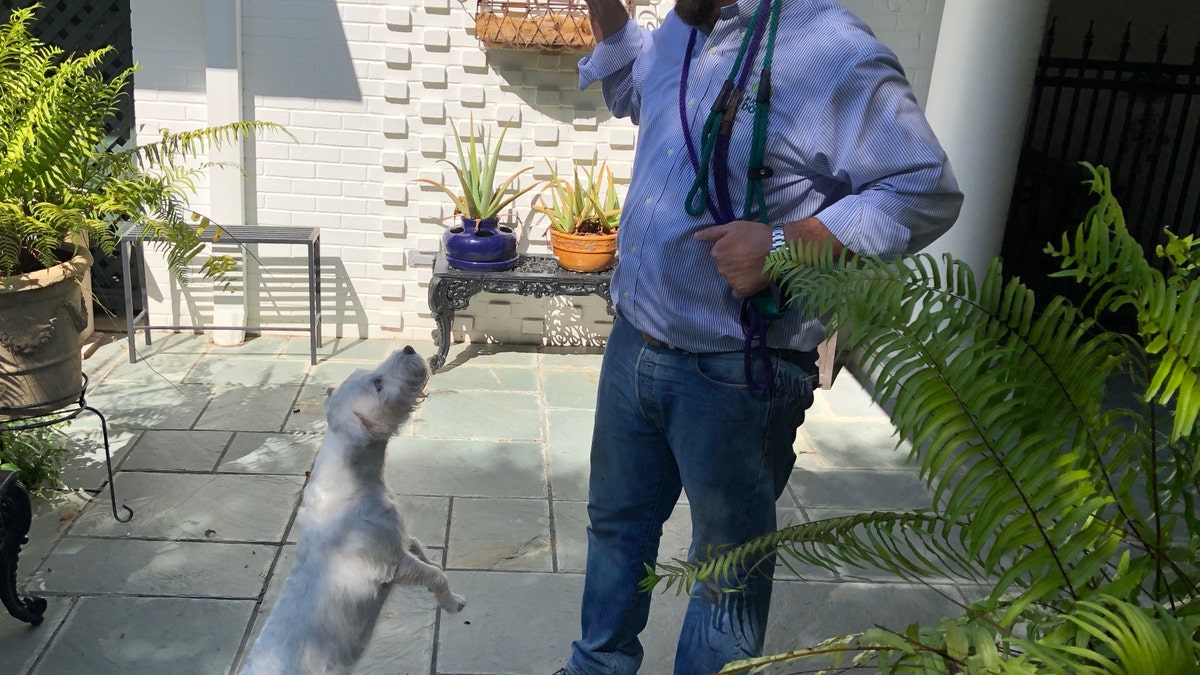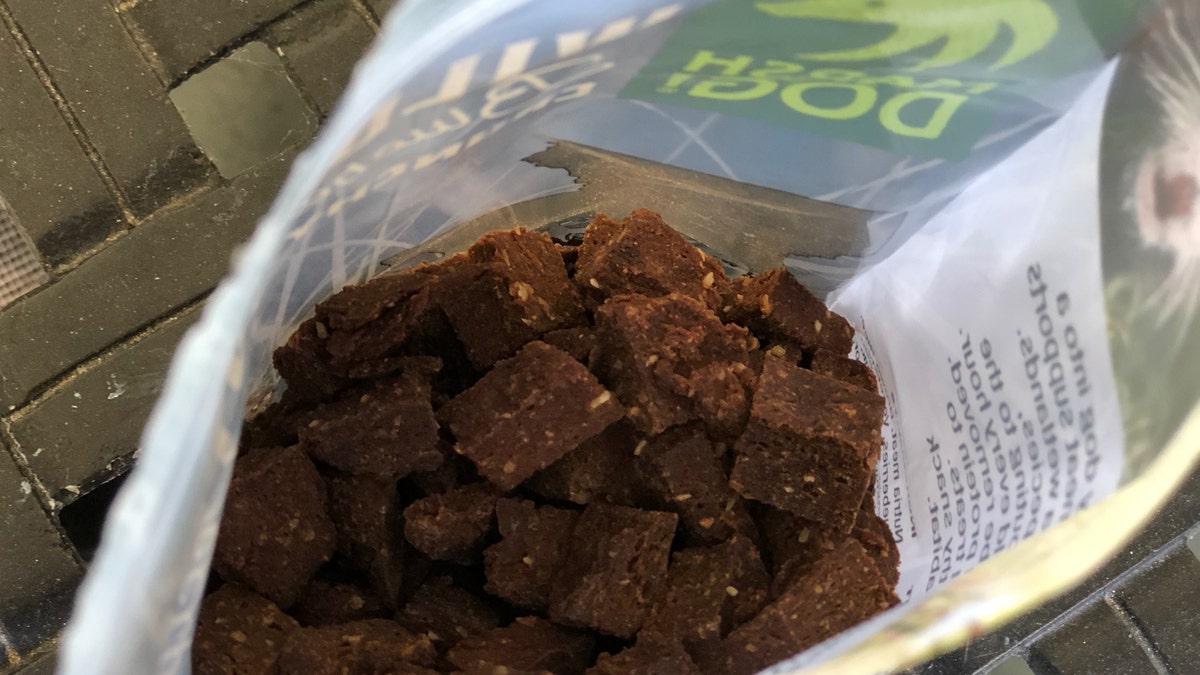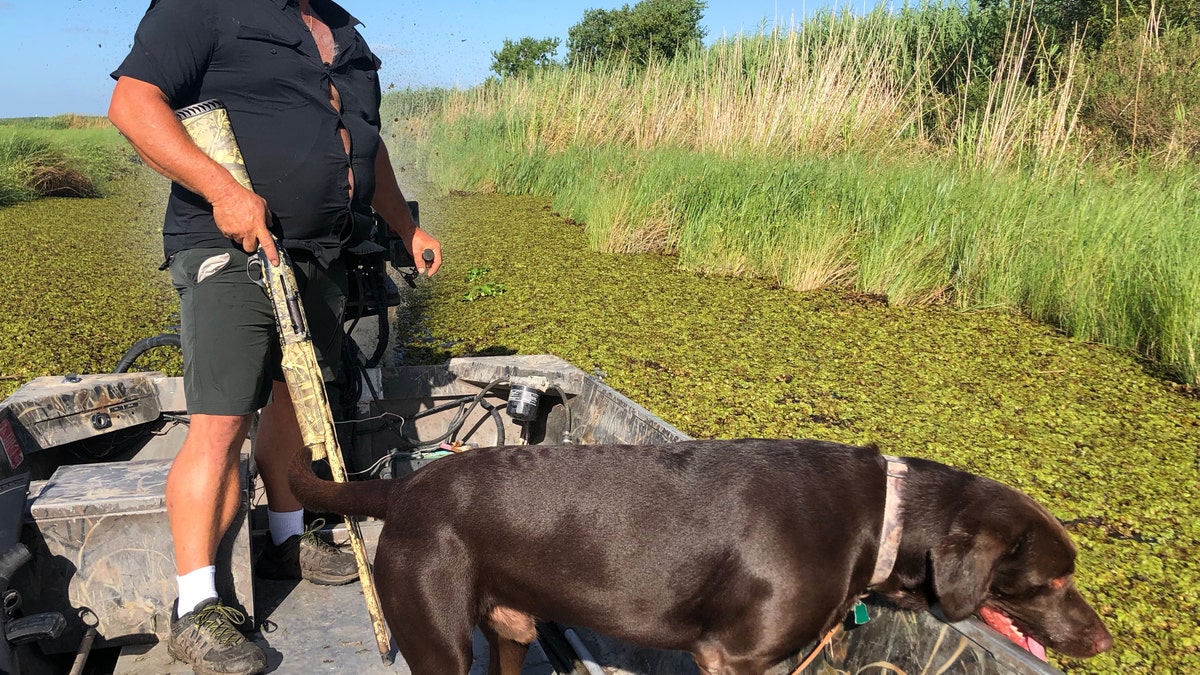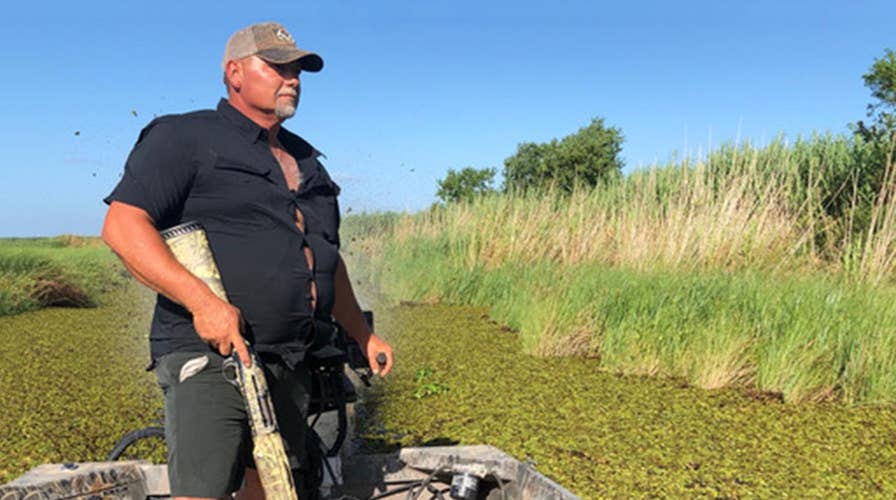Invasive rodent making Louisiana coast more vulnerable to powerful storms
An invasive swamp rodent is damaging thousands of acres of Louisiana's coast. Now a dog food company is stepping in with hopes to help with the issue.
PECAN ISLAND, La. — The state of Louisiana is upping the bounty on nutria rodents that devour and ruin thousands of acres of marshland in coastal Louisiana every year.
The rodents have been eating away at the state's marshland, which protect already vulnerable Louisiana from major storms. The wetlands absorb wind and rain, and help sustain wildlife, but they have been virtually eliminated by pesky nutria as their population continues to grow.
A ramped-up market for nutria meat could help the state reverse course on the destruction caused by the swamp rodent.
Marsh Dog, a dog food company based in Baton Rouge, believes its company is one of the keys in preserving the state’s marshland. It has opened a new market for nutria meat, which it then uses to produce dog treats the company is aiming to market nationally.
During hunting season, between November and March, Marsh Dog has taken advantage of the bounty on the swamp rodents -- buying nutria meat from hunters around the state to produce its dog treats. The company’s president, Hansel Harlan, said the company’s plan isn’t to get rich, rather it’s to help Louisiana with a serious issue.
“[Nutria] are a herbivore that absolutely love our wetlands and devour it like nobody’s business,” he said. “By creating a market for nutria, we incentivize people to hunt the nutria, which keeps their population in check.”

Hansel Harlan, president of Marsh Dog, feeds his pup a dog treat made from nutria meat. (Fox News/Charles Watson)
The swamp rodents are native to South America. According to Louisiana Wildlife and Fisheries, they were first brought to the state in the 1930s, when the population exploded to as many 20 million. The trade of their fur was booming back then, which gave hunters and trappers an incentive to capture the rodents for the sale of their thick, soft coat of fur. Once the international fur trade began to dwindle in the mid-1980s, harvests dropped and widespread damage caused by quickly populating nutria skyrocketed.
LORENZO BECOMES FIFTH HURRICANE OF THE ATLANTIC SEASON, FORECAST TO BECOME MAJOR STORM
The rodents, which reach sexual maturity about three months after birth and have a litter of pups every eight to 12 weeks, quickly repopulated. After damaging hundreds of thousands of acres of land coastwide, the state implemented its bounty program in 2002.
Damage to marshland has decreased dramatically. However, reduced harvests since the 2015 to 2016 hunting saw nutria damage to wetlands increase to 16,424 acres of land — the highest estimate of damages since more than 20,000 acres were harmed in 2009, according to Louisiana Wildlife and Fisheries.

Dog treats produced by Louisiana-based Marsh Dog. The company hopes the use of nutria meat in their dog treats will help tame the damage nutria cause to the state's marshland. (Fox News/Charles Watson)
Harlan said the bounty program is currently the most ethical way to deal with Louisiana’s nutria problem. However, he’s hoping the state’s goal of capturing 400,000 nutria annually is achieved by his company to the point where there will be no need for a bounty program any longer.
“We use hundreds of thousands of pounds of nutria meat every year. We’re hoping that over time we will be able to significantly reduce or displace the need for the bounty program,” he said. “That’s $4 million a year that’s coming out of Louisiana taxpayers in order to control this evasive species. If we could help reduce that number that’s spent on the bounty control program, we consider that a positive.”
RARE POLKA-DOTTED BABY ZEBRA SPOTTED IN KENYA
Justin Choate, an alligator hunter and former member of the History Channel reality show “Swamp people,” kills anywhere between 4,000 to 6,000 nutria in the same area on Pecan Island, La., every hunting season. He and his chocolate labs go out in the marsh when temperatures are at their coolest and collect as many of the orange-toothed swamp rodents as possible.
For him, it’s a way to bring some extra money, whether it be from the state bounty program or by selling meat to companies like Marsh Dog. It’s also a way for him to play his part in helping to slow the damage nutria cause to the marshland that protects the coast from storm surge and high winds when major storms hit, like hurricane Barry earlier this summer.
"You’ll see a piece of marsh with trees all over it. A mile long, a mile wide, that when a hurricane comes like that, the marsh moves," Choate explained. “The more vegetation and land that gets chewed up and washed away, the more susceptible we are to storm surge, especially for big hurricanes. The more land we have out there, the less we have to worry about the surge, but it’s getting less and less every year.”

Justin Choate sails through marshland with his chocolate lab, looking for nutira in Pecan Island, La. (Fox News/Charles Watson)
Choate is thankful that a market is opening for nutria meat, but he thinks more needs to be done to prevent further destruction of marshland. He would like the state to allow hunters, like himself, to hunt nutria year-round, as opposed to the five months between November and March. At the current rate of destruction to marshland, he’s concerned his children won’t get to experience things like hunting alligators and shrimping along the coast as he once did.
“You can’t just leave these nutria to repopulate,” he said. “Otherwise, it’s going to be catastrophic. If we don’t start doing more, our coastlines are going to be gone way quicker than they should be.”
Nutria are not only wreaking havoc on Louisiana’s coastline. The herbivores have also found their way into at least 16 states, including areas of Maryland, Texas and California, according to U.S. Fish and Wildlife Service. In fact, California Congressman Josh Harder recently introduced a bill in congress that would reauthorize the “Nutria Eradication and Control Act of 2003," which would give the state $7 million of funding to manage the species. Without the funding, Harder estimates there could be as many as 250,000 nutria in the Golden State in the next five years.
But animal rights activists call the eradication programs unnecessarily cruel.
“Nutria were the victims of human greed when they were imported by the fur industry, and now they're the victims of a depraved bounty hunt that only benefits bloodthirsty hunters and others who profit from selling their fur and flesh," said Stephanie Bell, a senior director for People for the Ethical Treatment of Animals (PETA), in a statement to Fox News. "Killing nutria will never control their population—officials have been down this road before in Louisiana—as other nutria will simply move in from surrounding areas to fill the void, and the only way to effectively reduce their numbers is to make the environment unappealing to them.”
Harlan said his company is always willing to work with animal advocates, but he believes killing nutria is currently the most effective way to control their population and protect vulnerable marshland.
“We as a company, certainly, do not demonize the nutria. It’s not their fault that they were brought here,” Harlan said. “The fact is the nutria have to be controlled in this environment. Otherwise, not only do they cause coastal erosion, they displace other native species and they create immeasurable harm and jeopardize the survival of the existence of the entire ecosystem.”


